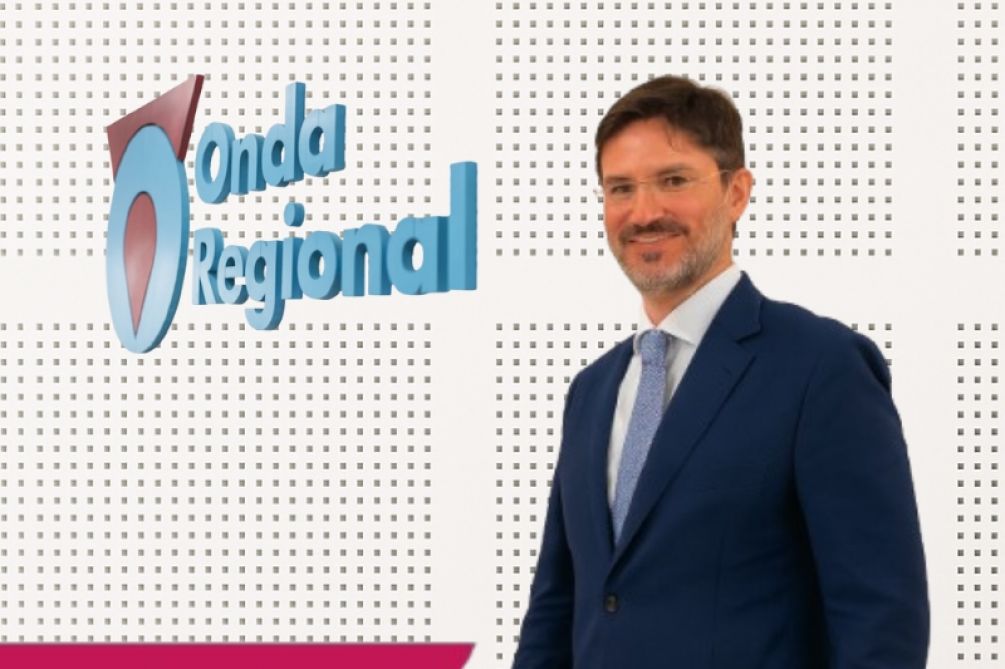Tourism sustainability is no longer an option — it is an urgent necessity. In an interview with Onda Regional, Patricio Azcárate, Secretary General of the Responsible Tourism Institute and CEO of Biosphere, analyzes how the Biosphere certification helps destinations and companies integrate the United Nations Sustainable Development Goals (SDGs) into their daily management, ensuring quality, competitiveness, and environmental and social commitment.

Sustainable tourism is no longer an aspiration but an urgent need to ensure the long-term competitiveness of destinations. This was expressed by Patricio Azcárate Díaz de Losada, Secretary General of the Responsible Tourism Institute (RTI) and CEO of Biosphere Sustainable, in a recent interview with Onda Regional de Murcia on the occasion of World Tourism Day.
During his appearance on the program Plaza Pública Noticias, Azcárate highlighted the evolution of responsible tourism as a response to the social, economic, and environmental challenges facing the sector. “It’s not about attracting fewer tourists, but about attracting tourists who generate a positive impact on destinations and their communities,” he stated.
One of the main topics of discussion was the Biosphere certification, an international recognition system promoted by the RTI that allows destinations to measure and validate best practices in sustainable tourism, aligned with the United Nations Sustainable Development Goals (SDGs).
The Biosphere standard, a global pioneer, evaluates environmental, cultural, social, and economic criteria in hotels, destinations, tourism businesses, and public administrations, promoting a comprehensive approach to sustainability.
According to Azcárate, “Tourism is a global industry and needs a common identification system that is recognizable to international consumers.” In this sense, he emphasized the creation of an international alliance among the world’s leading certifiers — the Tourism Sustainability Certifications Alliance (TSCA) — which brings together more than 25,000 certified entities under a shared regulatory framework.
He also explained that certifications must be audited by independent third parties, free of conflicts of interest, as established by the new European Consumer Protection Directive that will soon come into effect.
During the interview, it was emphasized that the success of future tourism will not be measured solely by the number of visitors, but by its ability to generate tangible benefits for local communities, reduce environmental impact, and preserve the natural and cultural heritage of destinations.
Azcárate stressed that “tourism sustainability is synonymous with quality, balance, and competitiveness,” and that its implementation must be based on data, audits, and continuous improvement that reflect each entity’s real commitment.
The phenomenon of overtourism and destination saturation was another topic discussed. In this context, Azcárate insisted that “the key lies in planning and proper management that balances promotion, mobility, accommodation, and social benefits.”
Sustainability, he affirmed, “should not be understood as a limitation, but as a tool to preserve residents’ quality of life and ensure an authentic, responsible experience for visitors.”
The Responsible Tourism Institute, established in 1997 following the 1995 World Conference on Sustainable Tourism, has dedicated more than three decades to defining and applying sustainability criteria in collaboration with organizations, companies, destinations, and experts around the world.
Since then, the Biosphere model has become a global benchmark for those who advocate for regenerative, fair, and inclusive tourism, with a methodology based on concrete indicators, verifiable evidence, and continuous support for committed entities.
The interview with Patricio Azcárate reinforces a key idea: sustainable tourism is no longer an alternative — it is the only viable path to building a competitive, responsible, and resilient tourism model.
At Biosphere, we continue to work alongside companies, destinations, and institutions to drive this global shift, supporting those who, like us, believe that a more humane, conscious, and transformative tourism is possible.
If you’d like to learn more and listen to the full interview with Patricio Azcárate Díaz de Losada, you can access the audio at the following link.
>> Listen to the interview on Onda Regional de Murcia – Plaza Pública Noticias